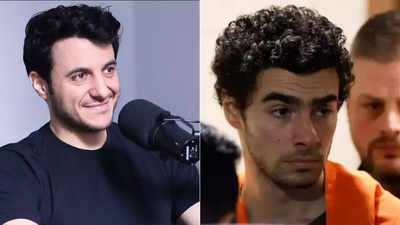Trending
United Healthcare CEO: What Luigi Mangione's favourite blogger thinks of him
Luigi Mangione, arrested for the murder of UnitedHealthcare CEO Brian Thompson, was surprisingly a follower of Tim Urban, an advocate for non-tribal political discourse. Mangione's actions contradict Urban's philosophy, raising questions about Mangione's mental state and interpretation of Urban's work. A misremembered quote and a shallow manifesto suggest a distorted self-perception and intellectual isolation.
The arrest of Luigi Mangione for the killing of Brian Thompson, the CEO of UnitedHealthcare, has sparked a maelstrom of speculation about his motivations and mental state. One particularly intriguing dimension of this case lies in Mangione's apparent admiration for Tim Urban, the blogger and author whose work emphasizes thoughtful, non-tribal political discourse. Mangione’s high regard for Urban's book, What’s Our Problem?, raises challenging questions about how someone so aligned with Urban's ethos could perpetrate an act of political violence.
Urban himself expressed confusion and sadness upon learning of Mangione's actions. As he noted in an interview, the incongruity of someone who evangelized his book resorting to political assassination left him grappling for explanations. Urban's writing champions a "high-rung" approach to thinking, which involves humility, openness, and a rejection of tribalism in favor of nuanced understanding. Mangione's actions stand in stark opposition to these principles.
The psychological profile of Mangione is perplexing. Unlike many perpetrators of violence who display clear signs of instability or radicalization, Mangione's background seems stable. Reports suggest he was well-regarded, socially integrated, and even kind—a stark contrast to the caricature of a deranged lone actor. This lack of overt warning signs has led some, including Urban, to speculate that Mangione may have experienced a profound mental health crisis, though the evidence of such a breakdown is scant.
Mangione's so-called manifesto further complicates the picture. It contains broad critiques of the health insurance industry but offers little depth or originality, making his rationale appear glib rather than ideologically driven. The manifesto’s final line—“Evidently I am the first to face it with such brutal honesty”—suggests a sense of exceptionalism, as though Mangione believed himself to possess an insight others lacked. This mindset could align with a dangerous form of intellectual isolation, where the perceived clarity of one’s vision leads to catastrophic action.
Urban emphasized that his book advocates for reform within the bounds of liberalism—a system that allows for progress through nonviolent means. The act of assassination, Urban argued, undermines the very foundation of this system by attacking its structural integrity. This perspective highlights the tragedy of Mangione’s misstep: he abandoned the principles of constructive discourse in favor of destruction.
The broader cultural implications are sobering. The celebration of Mangione’s actions by some online factions underscores the polarized and tribal nature of contemporary political culture. Urban warns that such dehumanization and binary thinking erode the social contract, paving the way for cycles of retaliatory violence.
Mangione’s case ultimately serves as a cautionary tale about the risks of ideological isolation and the dangers of misinterpreting well-intentioned ideas. It reminds us that the complexity of human motivation often defies simple explanations, particularly in an era of fragmented narratives and heightened polarization.
End of Article
FOLLOW US ON SOCIAL MEDIA
Visual Stories
Tired of too many ads?go ad free now











